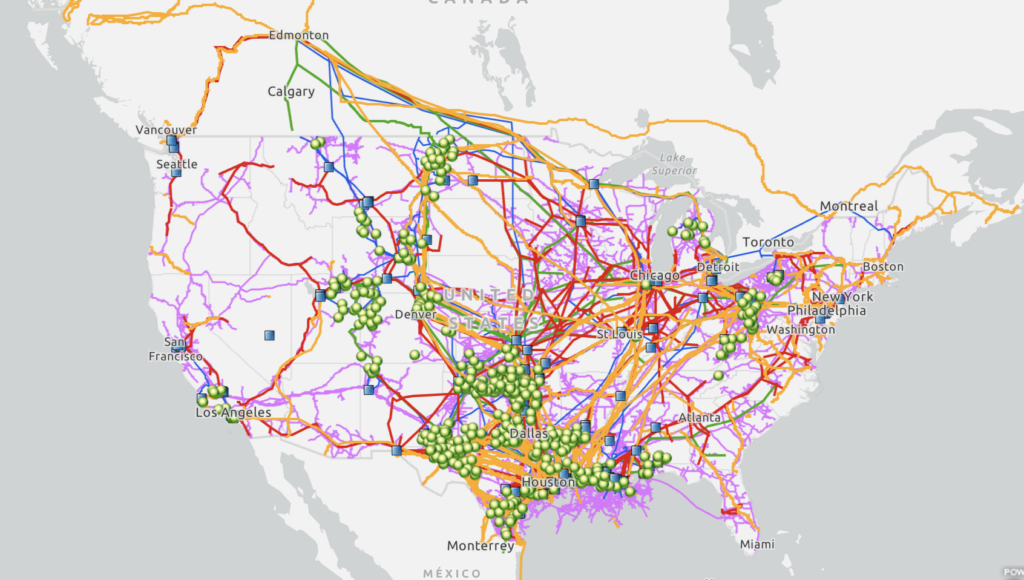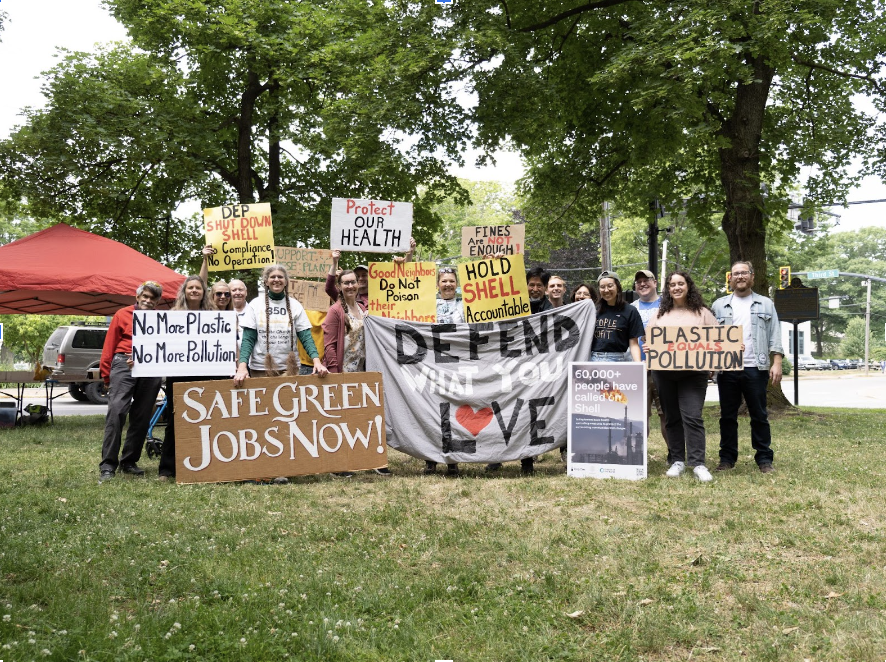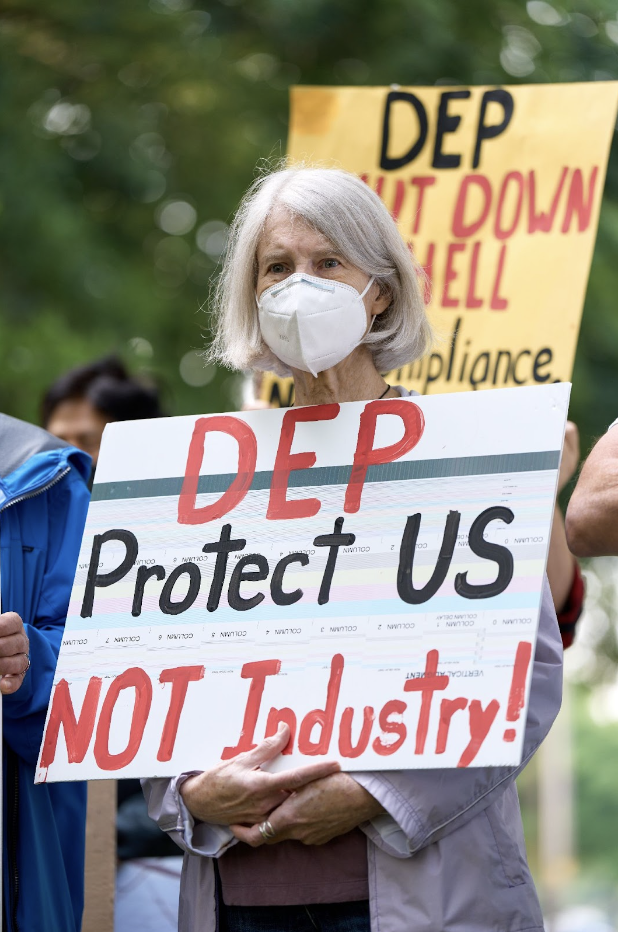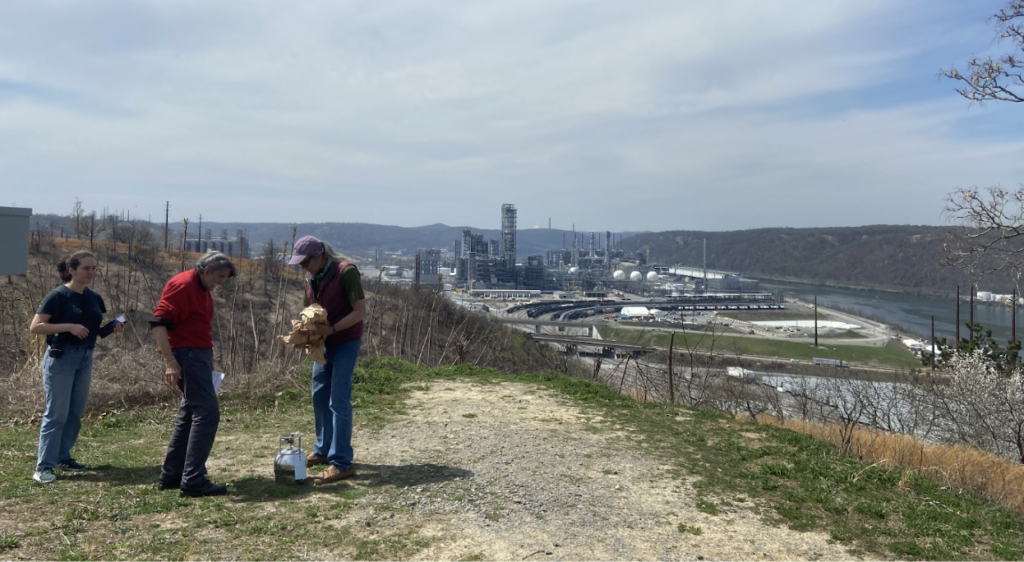Shell Polymers Monaca or better known as the Shell Plastics Plant in Beaver County Pennsylvania is the largest plastic production facility in the northeast United States and one of the largest in the United States. This facility is a stark reminder that the problem with plastic isn’t just pollution or disposal but the toxic and dangerous process of plastic production. The building blocks of the plastics crisis, nurdles, are produced here endangering frontline communities in PA,WV, and OH.

Shell, and the governments that permitted and encouraged the construction of the Beaver County plastics plant, decided for the community that the people here would be guinea pigs for a long-shot attempt to prolong profits for the fossil fuel industry. Once again people in the Ohio River Valley were sold out for the economic promises of the fossil fuel industry. But the job and economic boom never materialized and as we pay the health and environmental costs of this gamble communities are speaking out.

On November 15th, 2023, Shell will mark one year of what can questionably be called “operational” at the Beaver County facility. With at least two shut downs, one that lasted two weeks and another upwards of a month, at least twenty six malfunctions, and a permit status that still labels the facility as in start up rather than operation what does it mean that the company announced official operations a year ago on November 15th?
From the very first day of operations Shell’s facility was having problems that endangered the community and polluted the climate. On November 15th Shell had a malfunction that resulted in excess carbon monoxide, volatile organic compounds, and carbon dioxide pollution released in the atmosphere.
What does ‘operational’ mean?
In November 2022 Shell announced via facebook post that the facility was operational. However, Shell is still renewing its construction permit with the Pennsylvania Department of Environmental Protection. Shell recently renewed this permit until April 2024. While Shell is telling the community it is operational it is being regulated as a facility still under construction and in start up.}
The facility had two more malfunctions in the second half of November. By the one month anniversary the public learned Shell had exceeded its Volatile Organic Compounds air permit in October, even before the plant had even come online. By the end of 2022 Shell had accrued 5 malfunctions and 2 notice of violations.
Volatile Organic Compounds include a number of health harming pollutants such as benzene, a known carcinogen. Many public health experts including the World Health Organization agree that there is no safe level of exposure to benzene. Shell is also the largest VOC emitter in Southwestern Pennsylvania with its already generous permit.
One year removed from that faltering start-up, Shell has received 13 notice of violations and has had at least 26 malfunctions. These violations included exceeding yearly air permits for 4 different pollutants; Volatile Organic Compounds, Carbon Monoxide, Nitrogen Oxide, and Hazardous Air Pollutants. In addition to containing known carcinogens and having a multitude of known short and long term health impacts these pollutants combine with each other and create ozone pollution or smog, the nation’s most widespread outdoor air pollutant.
Shell has also received notice of violations for multiple malodor events, exceeding 2 limits in its water permit, exceeding benzene emission limits, and multiple instances of illegal flaring.
Shell’s over 26 malfunctions include chemical events such as a week long benzene release, an over 65 hour carbon monoxide emissions event, and a four hour emergency flaring event. In the short term Shell’s malfunctions and violations caused quality of life disruptions and stressors with excess light and noise, and short term health impacts such as headaches, coughing, and nausea.
In the long run Shell’s mistakes resulted in excess carcinogens and illegal air pollution being released in the community that we may not see the full health impact of for years to come.
This pollution is even more egregious as the township where Shell is located, Potter Township,
is in the 91th percentile of the 2023 PennEnviro Screen and considered an environmental justice area.
Potter Township is in the 87th percentile for population under 5 and the 50th percentile for population over 64. Potter Township is also in the 36th percentile for uninsured, the 44th percentile for asthma, the 79th percentile for cancer, and the 76th percentile for disability. These populations are hit hardest by petrochemical pollution whether they are little developing lungs more susceptible to pollutants in the air or uninsured populations unable to access healthcare after exposure to carcinogens from the facility.

It is difficult to not see this as anything as incompetence or careless disregard for the people impacted by the plant’s harms.
It is abundantly clear that Shell is still figuring out how to operate its’ facility and the cost of this trial and error is the health and safety of the local community. As the plastic facility malfunctions and breaks the law the regulator responsible for the permitting and regulation of this facility, the Pennsylvania Department of Environmental Protection (PADEP) has left residents to fend for themselves. In the face of this plastics behemoth both regulators and elected officials have shirked responsibility and the little response we have seen is reactive regulation and making excuses for the pollution.
Rather than let the company regulate itself, community members and advocates have demanded that PADEP take proactive action to prevent pollution. As the state agency that permitted this facility it is a reasonable expectation that the PADEP was equipped to regulate it as well.
In February 2023, after 13 malfunctions and 3 notice of violations in just 3 months, residents sent a letter to the PA DEP calling on the agency to issue a shut down of the facility until Shell could operate within compliance. Yet, PA DEP responded by saying Shell promised these problems wouldn’t happen once Shell finished start up and refused to shut down a facility that was emitting illegal pollution every day.
Over the past year as residents near the plant have been living through multi-day chemical releases, illegal flaring, and other disruptions particularly at night.
However, to date there is no public evidence of regulators conducting inspections outside of office hours. In April, the agency did nothing more than a human “sniff test” and naked-eye observation when residents were flooding the PADEP hotlines with comments about a potential benzene release. We know the pollutants coming from this facility like benzene are invisible to the naked eye but dangerous to human health.
When Earthworks took our camera to the facility in April, we saw no doubt malfunctioning and polluting equipment poisoning the air.
Earthworks and multiple partners have taken samples, done monitoring, and watchdogged the Shell facility to keep the residents informed and safe.
On the other hand air inspectors from the Pennsylvania DEP have never taken an air sample during an inspection and only started bringing air monitoring equipment with them in the past couple months.
Over the course of the past year there has never been a real time notification from the PADEP of malfunctions, emissions, or chemical events at the Shell plastics plant for the public to make informed decisions about their health and safety.

The events over the first year of operations at the Shell Plastic Plant lay bare once again the truth of the plastic industry; companies claim to be a good neighbor yet refuse to be accountable or transparent, agencies readily permit these facilities without having the resources to regulate them, and communities are left to deal with the pollution and deterioration of their quality of life as they worry about safety for their families and themselves all while the petrochemical industry creates more of an unnecessary product.
These massive plastic facilities are not just a threat when they malfunction, every day Shell operates in Beaver County it is putting the community at risk. This facility will never be able to operate safely and never be able to undo the pollution and damage it has caused over the past year. Shell can’t operate safely and that’s why we expect PA DEP to hold Shell to at least operate within the law.
